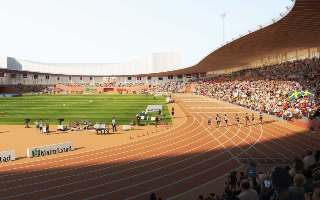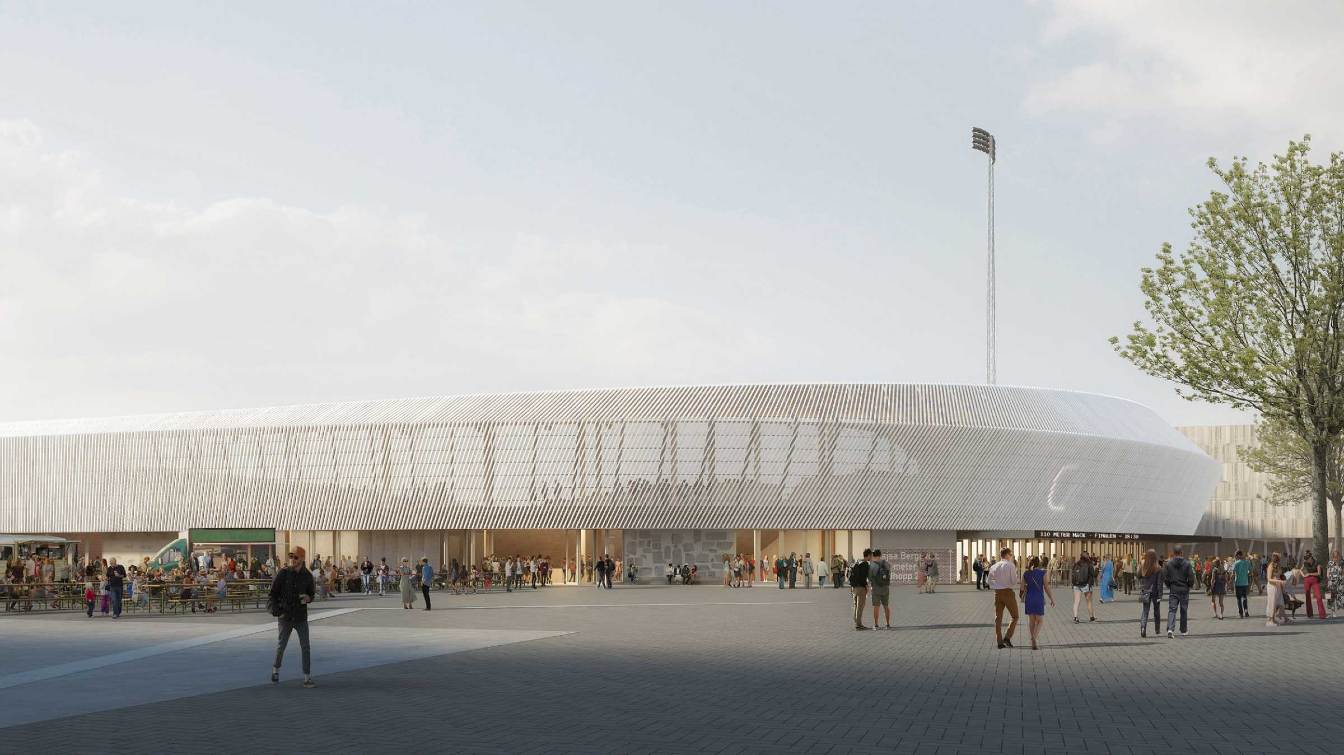Sweden: New stadium design in Malmö announced
source: StadiumDB.com; author: Paulina Skóra
 The architecture firm C.F. Møller Architects, in collaboration with the Swedish studio Elding Oscarson Arkitekter and the engineering company DIFK, has won the international competition to design the new stadium in Malmö.
The architecture firm C.F. Møller Architects, in collaboration with the Swedish studio Elding Oscarson Arkitekter and the engineering company DIFK, has won the international competition to design the new stadium in Malmö.
Advertisement
Four proposals, one winning design
Four international architectural teams competed to create an accessible, welcoming, and sustainable stadium for athletics and football, both at the national and international level. The winning design presents a facility that integrates daily sports activities, international competitions, and urban life into a single, coherent architectural form. The competition jury included representatives from the City of Malmö, Skanska, AFL Architects from Manchester, and a designer from Populous.

What will the new stadium in Malmö be like?
The new stadium will be built on the site of the current Malmö Stadion and will serve as a modern athletics and football venue, designed for hosting international events. It will have over 8,000 seats, with the potential to expand. The design features a low-profile, lightweight structure shaped like a superellipse, with a transparent, dynamic façade made of light ceramic louvers that reflect the surrounding architecture. The ground floor will celebrate sports achievements and records, and the entire facility will be seamlessly integrated into the urban landscape, connecting to parks, pedestrian paths, and open spaces.
The new stadium, like the old one, will be white and fluid in shape. It is meant to be a sculptural city icon, but also a human-scale, friendly place,
said Jonas Elding of Elding Oscarson. The design aims to minimize environmental impact—the structure combines concrete and wood, some façade elements will be reused from the current stadium, and the roof will be equipped with solar panels. The building will be energy-efficient without compromising functionality. Daily usage of the stadium is also central: foyer spaces will be used year-round by sports clubs, schools, martial arts classes, casual athletes, and local residents.
Advertisement
 StadiumDB
StadiumDB